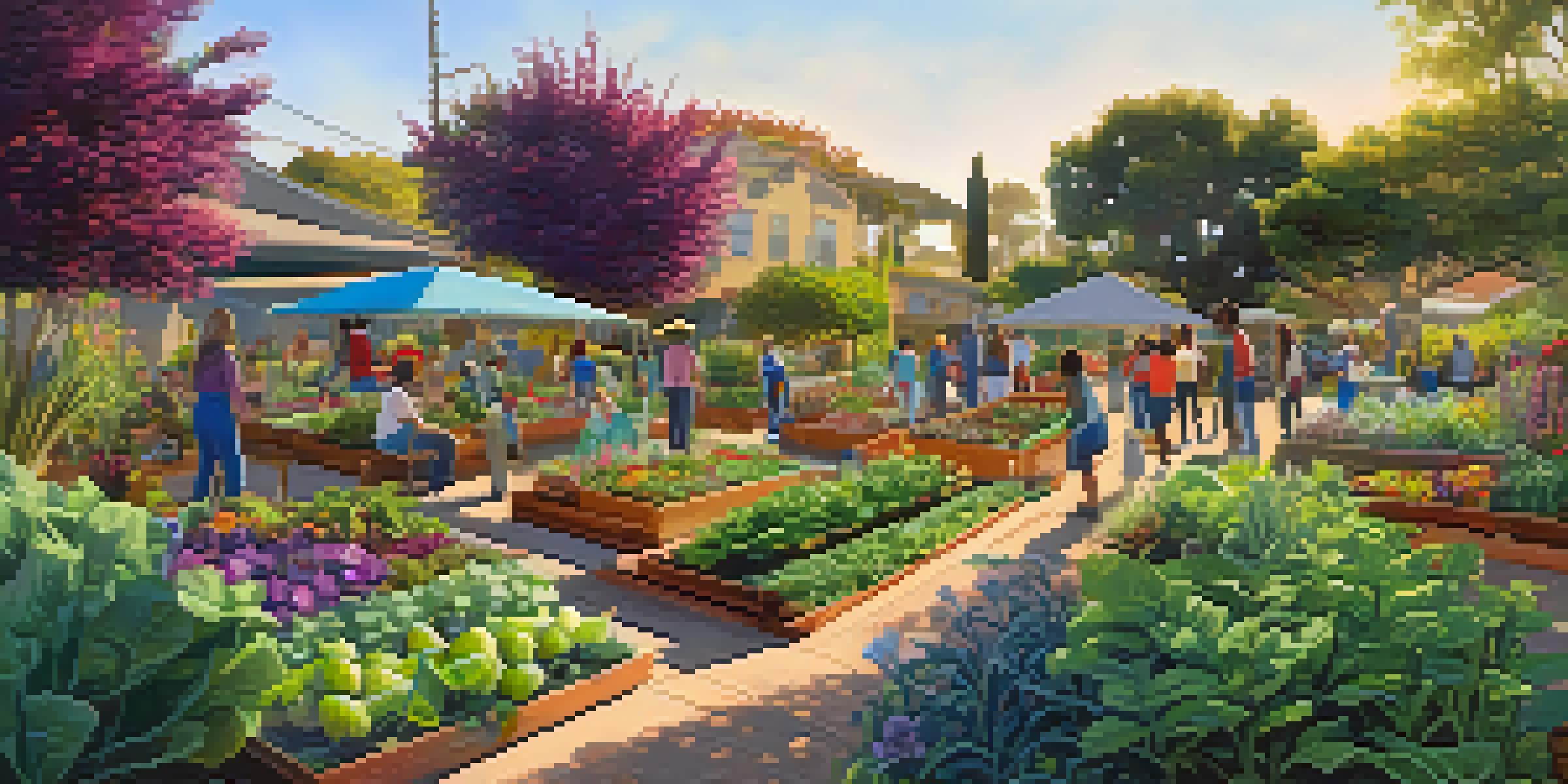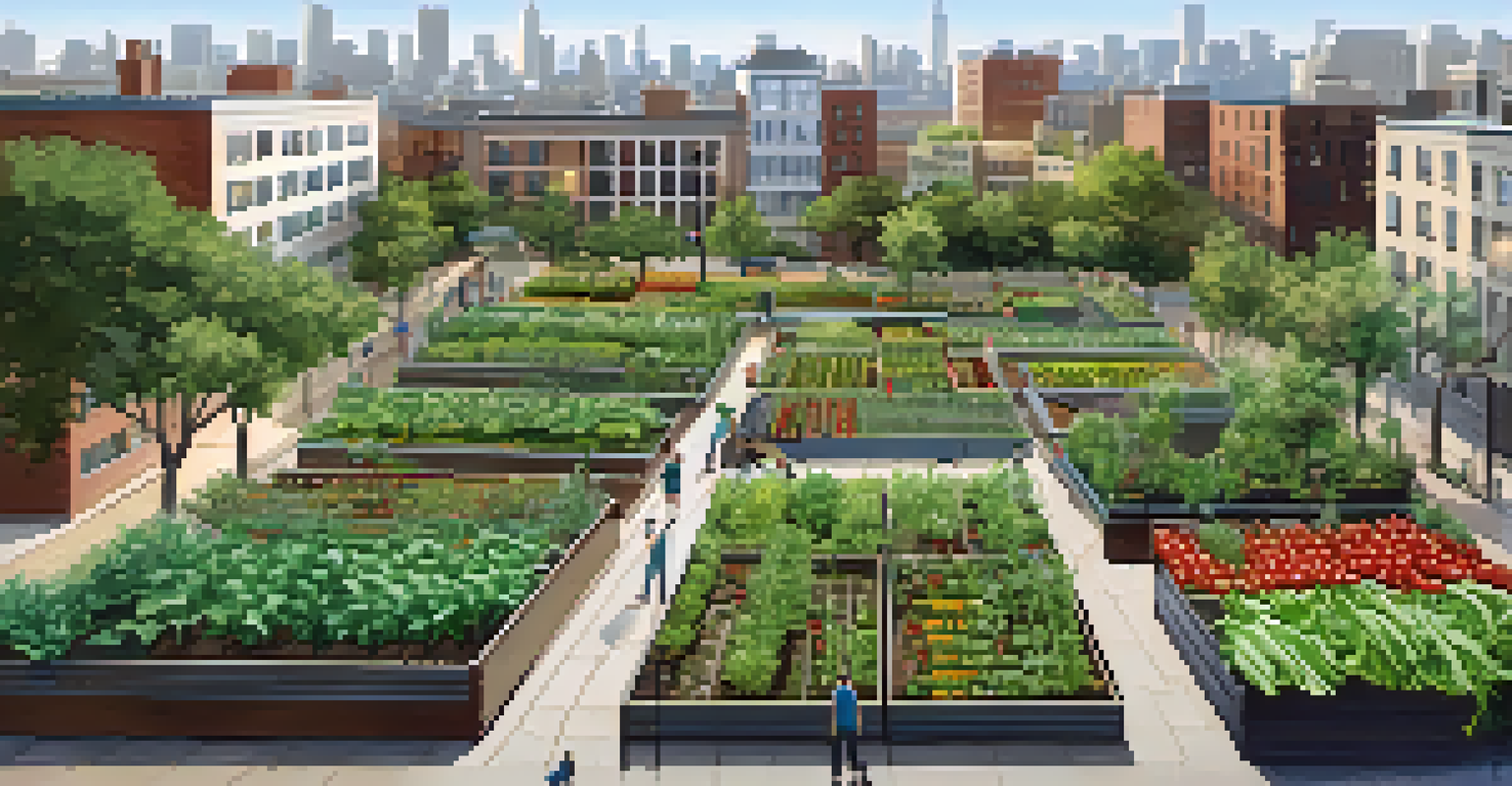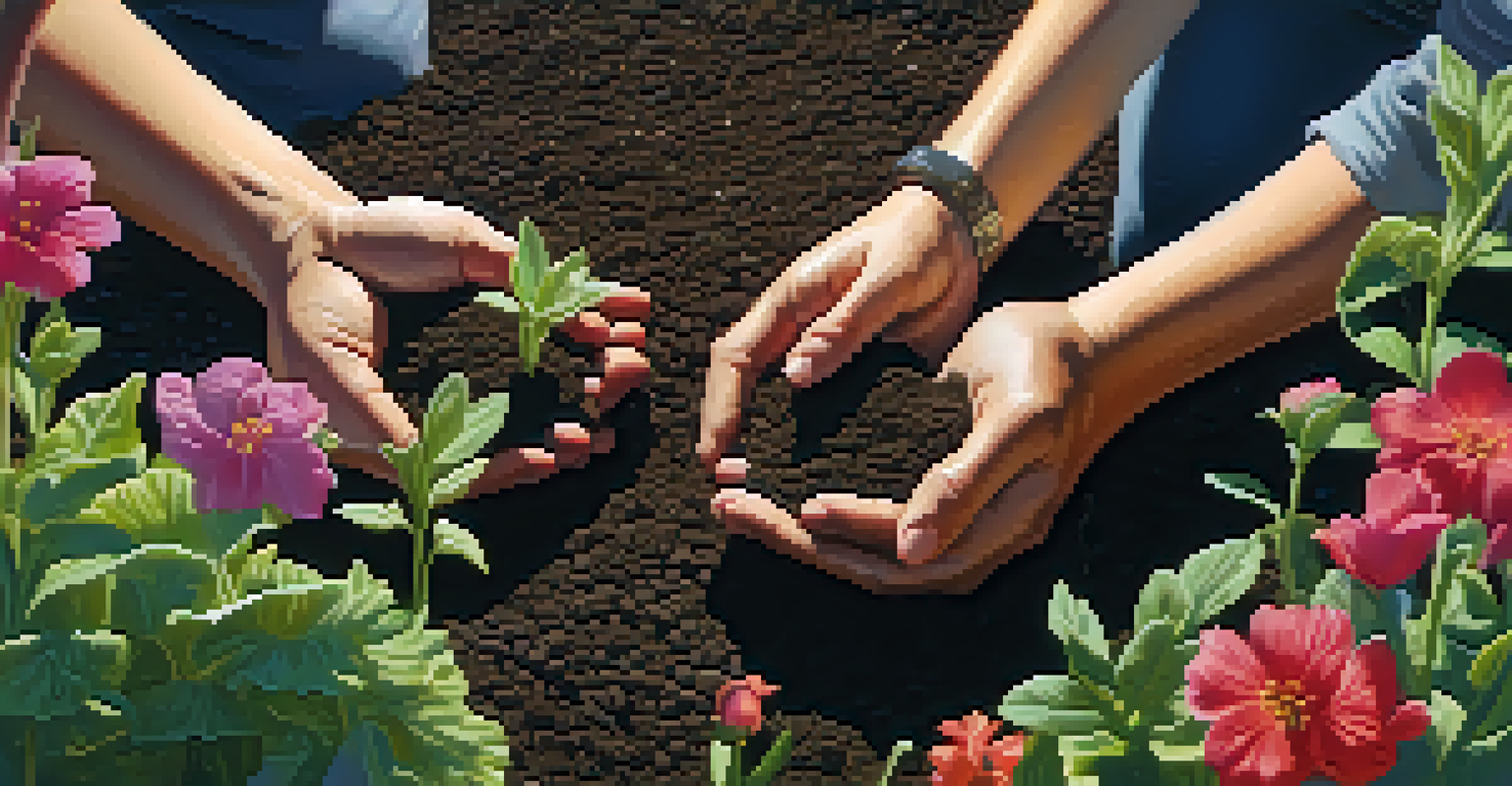How Community Gardening in San Diego Supports Local Food Systems

The Rise of Community Gardening in San Diego
Community gardening has blossomed in San Diego, reflecting a growing interest in sustainable living. With the city's favorable climate and diverse communities, these gardens have become vital spaces for locals to connect with nature and each other. Each garden serves as a green oasis, fostering friendships and collaboration among residents who share a passion for fresh produce.
The best way to predict the future is to create it.
As urban areas expand, the importance of green spaces becomes even more pronounced. Community gardens offer a solution to the challenge of food deserts, where access to fresh fruits and vegetables can be limited. By transforming vacant lots into productive gardens, San Diegans are not just beautifying their neighborhoods but also enhancing local food security.
This movement has led to increased awareness about where our food comes from and the importance of supporting local agriculture. With each seed planted, gardeners are making a statement about sustainability and resilience in the face of modern challenges, such as climate change and economic instability.
Nurturing Local Food Systems Through Collaboration
Community gardens thrive on collaboration, bringing together individuals from various backgrounds to share resources and knowledge. This cooperative spirit is essential for creating a robust local food system. When gardeners exchange tips on growing techniques or share excess produce, they strengthen the network of food producers in their community.

By working together, community members can optimize their gardening efforts, ensuring that their yields are not only plentiful but also diverse. This diversity is crucial, as it enables a broader range of produce to be available locally, reducing reliance on distant suppliers. Local food systems enriched by collaboration lead to fresher, healthier options for everyone.
Community Gardens Boost Food Security
By growing food locally, community gardens enhance access to fresh produce, especially in food deserts.
Moreover, these gardens often partner with local organizations, schools, and restaurants, creating a ripple effect that supports the entire community. Such partnerships help to educate others about the benefits of local eating and sustainable practices, further embedding the importance of community gardening in San Diego's food culture.
Enhancing Food Security Through Local Production
One of the most significant benefits of community gardening is its ability to enhance food security. By growing food locally, communities can reduce their dependence on commercial supply chains, which can be vulnerable to disruptions. This is particularly relevant in times of crisis, such as natural disasters or economic downturns, when access to food can become precarious.
To plant a garden is to believe in tomorrow.
Community gardens provide a reliable source of fresh produce for families, often at little to no cost. Many gardens operate on a model where participants can take home what they grow, making nutritious food accessible to those who might otherwise struggle to afford it. This model not only improves the health of individuals but also nurtures community bonds.
In addition, these gardens often grow a variety of crops, including culturally significant foods that reflect the diverse backgrounds of San Diego residents. By prioritizing local production, community gardens help ensure that everyone has access to the foods they love and need, thereby strengthening the community's overall resilience.
Promoting Environmental Sustainability
Community gardening in San Diego plays a pivotal role in promoting environmental sustainability. By cultivating spaces for growing food, gardeners contribute to biodiversity, which is crucial for healthy ecosystems. These gardens often attract beneficial insects and pollinators, creating a balanced environment that supports both plants and wildlife.
Additionally, many community gardeners embrace organic practices, reducing the need for harmful pesticides and fertilizers. This commitment to natural gardening methods not only protects the local environment but also results in healthier produce. By encouraging sustainable practices, community gardens lead by example, inspiring others to adopt eco-friendly habits.
Collaboration Strengthens Local Systems
Community gardens foster collaboration among residents, enriching local food systems through shared resources and knowledge.
Furthermore, these gardens often incorporate water-saving techniques, such as drip irrigation and rainwater harvesting. In a city like San Diego, where water scarcity can be a concern, these practices make gardening more sustainable and responsible. By prioritizing environmental stewardship, community gardens help to create a greener, more sustainable future for all.
Fostering Community Engagement and Education
Community gardens serve as educational hubs where individuals can learn about gardening, nutrition, and sustainability. Workshops and events hosted in these spaces provide valuable knowledge to both seasoned gardeners and novices alike. This emphasis on education helps demystify the process of growing food, empowering more people to take part in local food systems.
By engaging with the community, gardens can also address important issues such as food justice and equity. Many gardens focus on underserved populations, providing resources and support for those who may not have access to gardening tools or education. This proactive approach fosters inclusivity and drives meaningful change within the community.
Moreover, community gardens often collaborate with local schools, offering students hands-on learning experiences. These initiatives not only teach children about where their food comes from but also instill a sense of responsibility toward the environment. Through education and engagement, community gardens are transforming the next generation into informed stewards of their local food systems.
Building Resilience in Local Communities
The act of gardening itself can be a therapeutic experience, offering a sense of purpose and well-being to participants. Community gardens provide a space for individuals to unwind, connect with nature, and build relationships with their neighbors. This sense of belonging fosters community cohesion, which is essential for resilience in times of uncertainty.
Moreover, as residents come together to tackle shared challenges—such as food insecurity or climate change—they cultivate not just food but also a collective strength. These gardens symbolize hope and perseverance, showcasing the power of community action in creating positive change. When people unite for a common cause, they create a supportive network that can withstand external pressures.
Gardening Promotes Environmental Health
Community gardening supports biodiversity and sustainable practices, contributing to a healthier environment in San Diego.
This resilience is particularly important in urban environments like San Diego, where socio-economic disparities can lead to vulnerability. By investing in community gardens, residents are actively contributing to a more equitable and sustainable future, demonstrating that collective efforts can yield profound benefits for everyone.
The Future of Community Gardening in San Diego
Looking ahead, the future of community gardening in San Diego appears bright. As more residents recognize the importance of local food systems, interest in participating in these gardens is likely to grow. This momentum could lead to the establishment of even more community gardens, expanding access to fresh produce across the city.
Furthermore, as climate change continues to impact agricultural practices, community gardens will be essential in developing adaptive strategies. By experimenting with various crops and techniques, gardeners can contribute to a more resilient food system that can withstand environmental challenges. Their hands-on experience will be invaluable for future generations.

Ultimately, the success of community gardening in San Diego hinges on continued support from local governments, organizations, and residents. By prioritizing these green spaces, we are investing in our communities' health, well-being, and sustainability, ensuring that the benefits of community gardening are enjoyed for years to come.